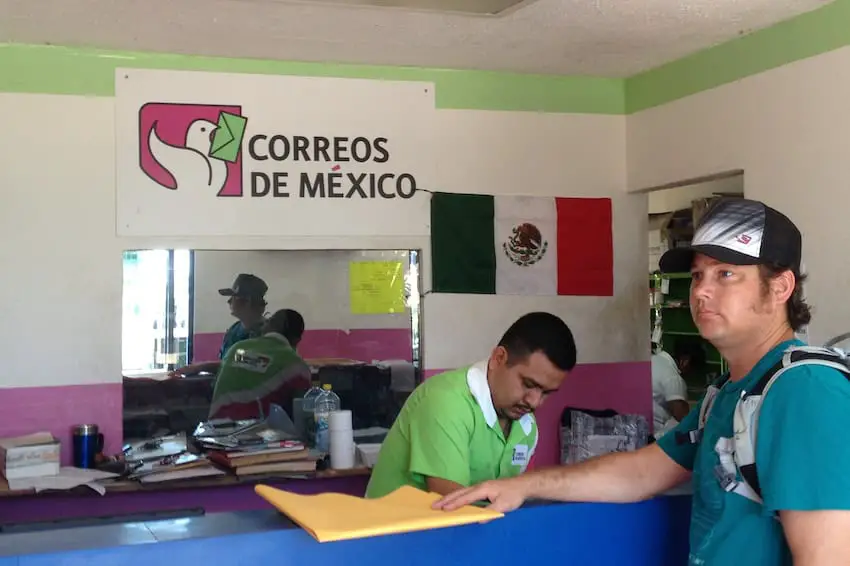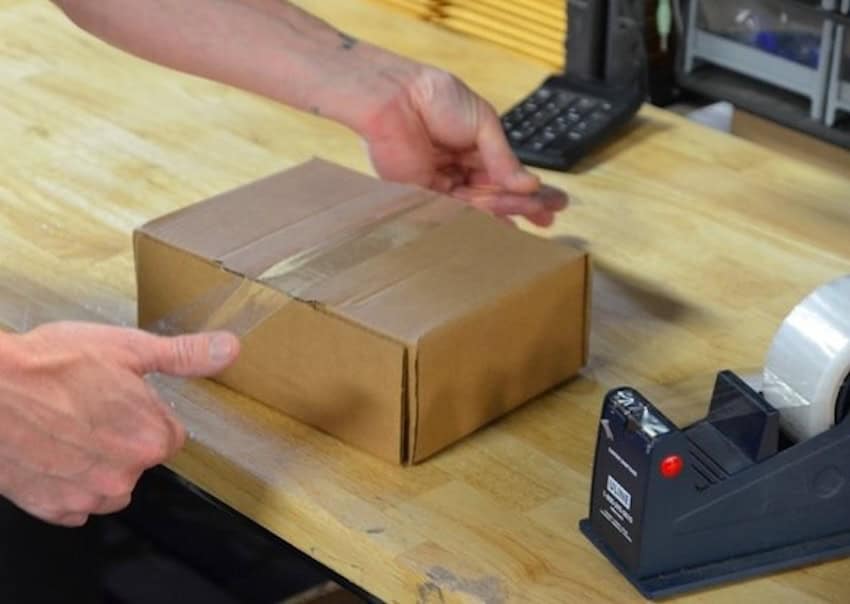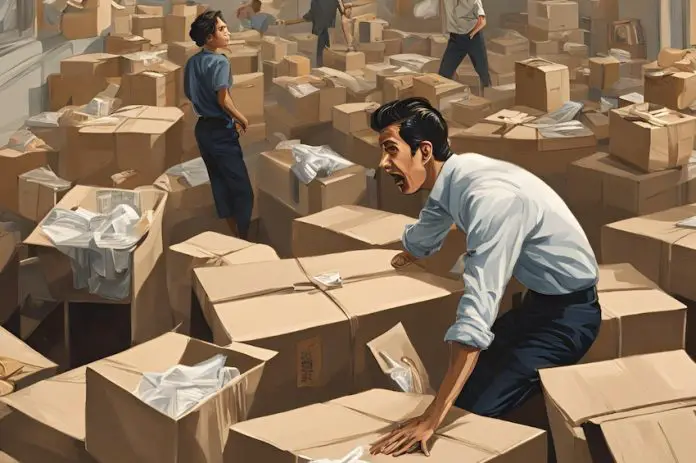Three years ago, I’d just moved from Bogotá, Colombia, to Playa del Carmen. We’re talking two different climates entirely, and as such, I had in my possession a suitcase full of cold-weather clothes I’d no longer have any use for. Neither wanting to part ways with them in case fate someday led me to another cold-weather city, nor foreseeing enough trips to the United States to make shepherding the garments back feasible, I figured my best bet was shipping them via the Mexican postal service.
Most gringo expats I know are in some way or another frugal. They may not openly cop to this, but if the reasons we live in Mexico were visually represented as a pie chart, purchasing power would not be a thin slice. I’m not admitting that this is true for me, but I somehow settled on shipping my clothes home the slowest way possible.

The Correos de México branch I wound up in could have been a carnival attraction in another universe. A hall of mirrors but more bureaucratic. The master of ceremonies was a paunchy, balding man in jeans and an unbuttoned polo shirt, sweaty and bespectacled. He moved around with a kind of anxious grace, like an iron chef, and wasted no time in telling me that my clothes — then still in a ratty gym bag — wouldn’t ship unless I boxed them up and that no, “we don’t have any spare boxes.”
Ten minutes later, I was in Chedraui, lurking behind employees restocking shelves, hassling them until one reluctantly gave up a spare box. When I got back to the post office, I feared I’d lost my place in line. Then I remembered that lines in places like these are a fluid concept: I likely never had a place to begin with. I stood at the entrance doing my best to will the lone postmaster to look up from the six patrons he was simultaneously attending to and acknowledge me. All I got was a nod and an “I’ll get to you when I get to you” look.
When he checked the contents of my box a few minutes later, he nodded and gave me a thumbs up which I assumed was postmaster for “seal it up.” I looked at him the way I imagine Oliver Twist looked at whoever was serving him gruel in the orphanage, hoping he might spare some tape, but he had none, he said, pointing me in the direction of a stationery store around the corner. I bought the first roll I was offered, a bulky, clear ring I’d have no use for once the ordeal was over. Another five or so minutes later, I was back, lifting my box proudly for the postmaster to see like a child presenting shoddy macaroni art to a parent. He wasn’t quite as impressed. “It has to be cinta canela,” he said — brown tape.
The stationery store clerk didn’t even pretend to be shocked when I walked back in. Clearly, I wasn’t the first to fall for the ‘ole tape-and-switch.

The postmaster had me label my box using identical, neatly torn strips of printer paper. Why I was given four when it only takes one to indicate where you want your box to go is beyond me. Still, he was insistent. “Shipping address, center, return address top left. All four. When you finish, tape one to the box and give the rest to me.”
I did as he said, then took it a step further by sealing every inch of the labeling slip I had chosen for my box with multiple layers of cinta canela. Hurricane season is coming,” I thought, “what if the paper gets wet and my writing smears?” The postmaster took one look at my box and sighed, now clearly sick of my shit. “Only tape around the borders, not the whole slip. Do it again,” he said.
I looked around to see if anyone else was being similarly put through the wringer. Behind me was a guy with a tattered box. I kept waiting for the postmaster to tell him off but he seemed content with the man’s packing job. To my right was a Cuban woman who had barged in and made a beeline to the postmaster’s counter. “Wait your turn,” he said to her.
By the time I got my labels right, I had to have been at it for at least an hour. There must be a dog years equivalent for errands like that — the kinds that stretch time and slowly reduce you to an exasperated, desperate, submissive shell of your former self, now willing to do things you couldn’t have imagined when you first walked into that crowded post office.

That’s why when my box was placed on a scale and the postmaster quoted me a price three times what I was expecting, I sighed and said “Ok.” And why, when I handed him my credit card but was told payment was cash-only, I spent another 20 minutes wandering, looking for an ATM instead of simply taking my box back. My sunk cost at that point was just too steep.
It feels like we do this a lot when we migrate. Expecting things to be ready-made for us. Assuming procedures will be straightforward or identical to what we’ve come to know. The truth is that no matter how much you huff, puff and wring your hands, lamenting the fact that this would never happen back home, you made a choice and you’re here now.
And because you’re probably frugal, you’re more likely to stay than tape up your boxes and start over again somewhere else. There’s a beautiful finality to that, one that ties us together as expats. There’s no going back, you have no choice but to get on with things here. You’ve left your old life behind, and that’s just too steep a sunk cost to give up now.
Ethan Jacobs is a freelance writer and writing coach based in Playa del Carmen. He has written extensively in narrative and short fiction formats, and his work has received recognition both domestically and internationally in microfiction, short fiction and narrative essay formats.
